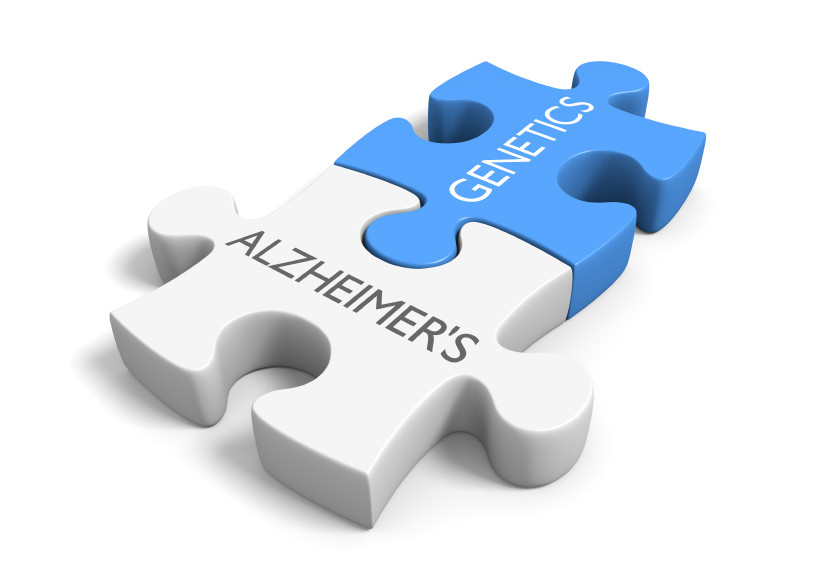
5 timeless habits for better health

What are the symptoms of prostate cancer?

Is your breakfast cereal healthy?

When pain signals an emergency: Symptoms you should never ignore

Does exercise give you energy?

Acupuncture for pain relief: How it works and what to expect

How to avoid jet lag: Tips for staying alert when you travel

Biofeedback therapy: How it works and how it can help relieve pain

Best vitamins and minerals for energy

Should you take probiotics with antibiotics?
Memory Archive
Articles
Can getting quality sleep help prevent Alzheimer’s disease?
Sleep gives the brain the opportunity to rid itself of proteins believed to contribute to the development of Alzheimer’s disease, and now research is showing an association between poor sleep and the accumulation of those proteins.
A healthy lifestyle may help you sidestep Alzheimer’s
By now it’s evident that healthy lifestyle habits have clear benefits, and evidence suggests that keeping Alzheimer’s disease at bay may eventually be added to the list. Data are strongest for regular exercise, a Mediterranean diet, and sufficient sleep as important ways to reduce the risk of Alzheimer’s. Other lifestyle choices may help as well.
A twist on the genetic link between Alzheimer’s and heart disease
Although the two conditions seem unrelated, Alzheimer’s and heart disease actually share a genetic link. People who have a certain gene variant have both a somewhat elevated heart disease risk and a significantly elevated Alzheimer’s risk. Fortunately, a recent study has suggested that when people know they have this variant, they’re more likely to make healthy lifestyle choices that benefit their heart — and what’s good for the heart is good for the brain.
Can a heartburn drug cause cognitive problems?
Many older adults take PPIs to treat heartburn, GERD, or stomach ulcers. Recently, a new study identified a link between chronic PPI use and an increased risk for dementia. If you take a PPI, check in with your doctor — you may be able to take it only when you have symptoms, not continuously (and this kind of usage was not associated with a dramatically increased dementia risk in the study).
Decline in dementia rate offers “cautious hope”
Last year, the Alzheimer’s Association predicted that rates of dementia would continue to rise. However, a report recently published in the New England Journal of Medicine found that rates of dementia have actually dropped steadily over the past three decades. Whether the drop in rates applies to everyone, and whether it will continue, remain to be seen. But the evidence also confirms that there’s quite a lot you can do to lower your dementia risk.
Getting closer to understanding how exercise keeps brains young
A new study published in PLOS One, looked at oxygen related changes and nerve processing in the brain, features that have shown to correlate with better memory and brain function as people age. It found that people with higher fitness levels were the same ones that were more physically active during the week. They were also the same people who showed more positive oxygen related changes and MRI findings consistent with faster nerve processing in the brain. Though there isn’t an exact exercise prescription to guide how long and hard we should exercise, the results of this study and many others, show even low intensity activity for an hour a day is much better for the brain than sitting on the couch.
Mediterranean diet may help counteract age-related declines in memory and thinking skills
Can a Mediterranean-type diet with extra servings of nuts and extra-virgin olive oil help protect memory and thinking skills with age? A study in this week’s JAMA Internal Medicine suggests that it might. The findings come from a small substudy done as part of the PREDIMED trial, which showed that a Mediterranean diet supplemented with extra-virgin olive oil or nuts reduced heart attacks, strokes, and other cardiovascular problems among people at high risk for them. Although the results of the new PREDIMED study are promising, its small size and the fact that it wasn’t designed to look at connections between diet and brain health mean the results need to be taken with a grain of salt. That said, since there’s no downside to following a Mediterranean diet, an added bonus beyond great taste could be protecting memory and thinking skills.
Editorial calls for more research on link between football and brain damage
Is brain damage an inevitable consequence of American football, an avoidable risk of it, or neither? An editorial published yesterday in the medical journal BMJ poses those provocative questions. Chad Asplund, director of sports medicine at Georgia Regents University, and Thomas Best, professor and chair of sports medicine at Ohio State University, offer an overview of the unresolved connection between playing football and chronic traumatic encephalopathy, a type of gradually worsening brain damage caused by repeated mild brain injuries or concussions. The big question is whether playing football causes chronic traumatic encephalopathy or whether some people who play football already at higher risk for developing it. The Football Players Health Study at Harvard University hopes to provide a solid answer to that and other health issues that affect professional football players.
Cocoa: a sweet treat for the brain?
There are many reasons why you might want to give someone chocolate on Valentine’s Day. There’s the tradition of it, and the idea of sweets for your sweetheart. Here’s another tempting reason: certain compounds in chocolate, called cocoa flavanols, have recently been linked with improved thinking skills. Italian researchers found people who drank a daily cocoa brew with a lot of flavanols (more than 500 milligrams) significantly improved their scores on tests that measured attention, executive function, and memory. How might cocoa flavanols boost thinking skills? They may help brain cells connect with each other. Dark chocolate is a good source of flavonols. It’s also a good source of calories. Adding it to your diet without taking out other foods can lead to weight gain, which may wipe out any health gain.

5 timeless habits for better health

What are the symptoms of prostate cancer?

Is your breakfast cereal healthy?

When pain signals an emergency: Symptoms you should never ignore

Does exercise give you energy?

Acupuncture for pain relief: How it works and what to expect

How to avoid jet lag: Tips for staying alert when you travel

Biofeedback therapy: How it works and how it can help relieve pain

Best vitamins and minerals for energy

Should you take probiotics with antibiotics?
Free Healthbeat Signup
Get the latest in health news delivered to your inbox!
Sign Up










